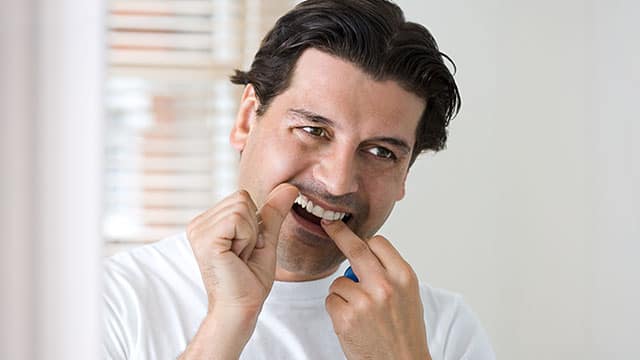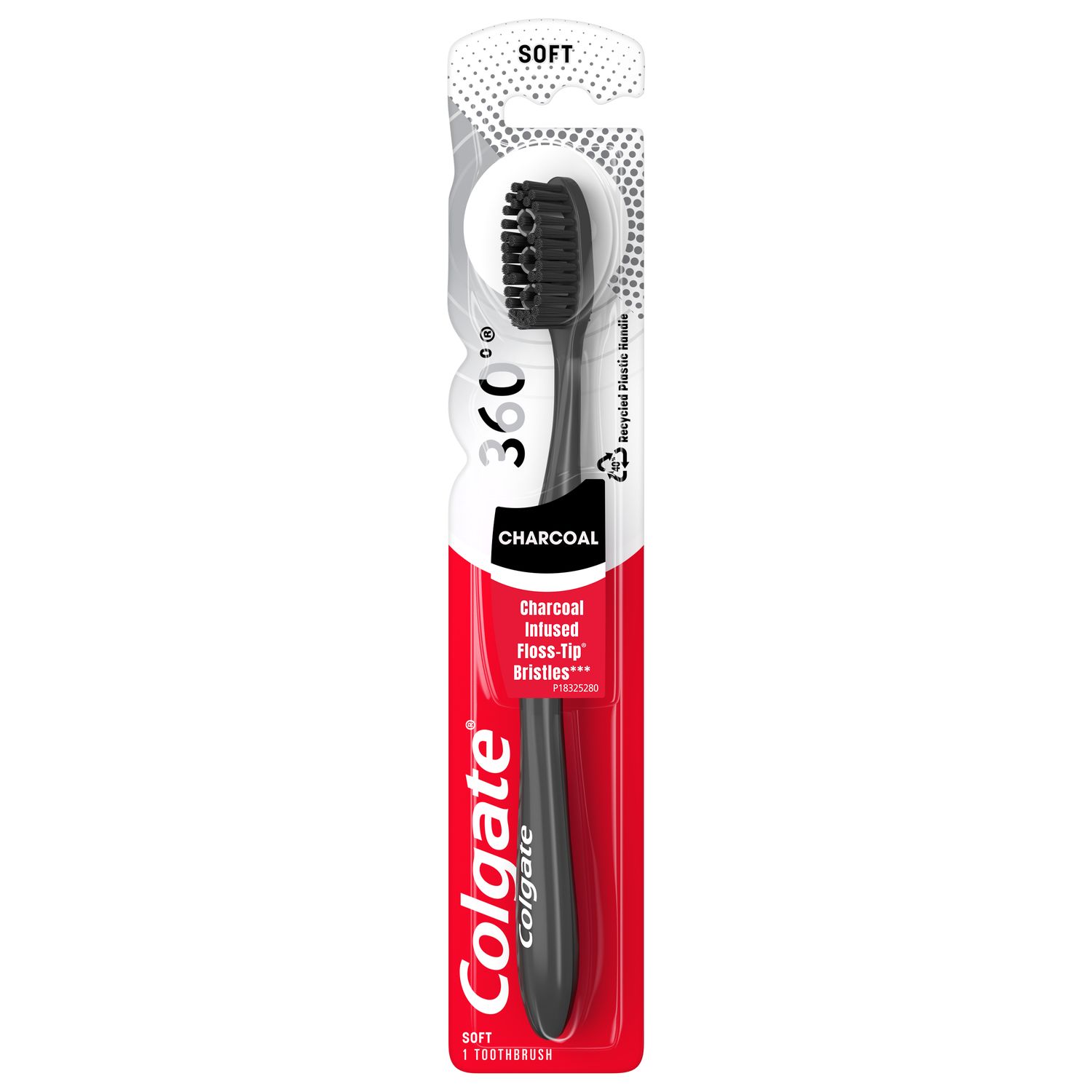Why Are My Gums Bleeding?
Bleeding gums are most commonly a sign of an underlying oral health problem. According to the American Dental Association (ADA), the most significant cause of bleeding gums is a build-up of plaque. This sticky substance is full of bacteria, which produces acid that irritates the gums and can cause them to bleed. This is known as gingivitis, or early gum disease. If left untreated, it can progress to advanced gum disease, or periodontitis.
Bleeding gums can also be a sign of:
Injury or trauma to the gums.
Hormone fluctuations, especially during puberty, pregnancy or menopause.
Blood disorders.
Diabetes.
Stress.
Nutrient deficiencies.
What Deficiency Causes Bleeding Gums?
Certain nutrients in your diet play an essential role in gum health, so a deficiency in any one of these nutrients might show up as bleeding gums. The deficiencies most commonly associated with bleeding gums are:
Vitamin K. This vitamin helps your blood to clot and also helps to moderate your immune system and fight inflammation. So not only does a lack of vitamin K make your gums more susceptible to bleeding, it also makes you more vulnerable to infection and inflammation from gum disease – the most common cause of bleeding gums.
Vitamin C. This vitamin keeps teeth and gums strong and repairs damaged tissues. Deficiency is associated with swelling and poor wound healing, so gums might bleed easily and take longer to heal.
Vitamin D. The “sunshine vitamin” is essential for a healthy immune system. As with vitamin K, a lack of this vitamin can leave you vulnerable to gum disease and bleeding gums.
How to Stop Bleeding Gums
By now, you might have an idea what’s causing your bleeding gums – but what can you do about it? Here are eight top tips for treating bleeding gums.
1. Step Up Your Oral Care Game
Plaque is the main cause of gum disease and bleeding gums, and it’s typically caused by poor oral hygiene. The best way to reduce plaque and treat bleeding gums, then, is to amp up your oral care routine.
Brush twice a day using a fluoride toothpaste and floss daily. If you’re not used to flossing every day, you might notice a little bleeding at first. This should go away after a couple of days of consistent flossing, so be sure to make it a non-negotiable part of your daily routine.
2. Take a Look at Your Tools
Your oral hygiene tools could be the cause of your bleeding gums. Although it might seem like a toothbrush with medium or firm bristles cleans your teeth better, harder bristles usually cause irritation — which can cause your gums to bleed. The ADA recommends using a toothbrush with soft bristles, which cleans your teeth and gums thoroughly without irritation.
Be careful with that dental floss, too! Snapping the floss or sawing away at your gum line can cause bleeding gums, so go gently. And if you find that floss isn’t working for you, consider other interdental cleaning tools like water flossers or picks.
3. Maintain a Healthy Diet
What you eat plays a part in keeping your gums healthy. Foods that contain lots of sugar or simple carbohydrates increase your risk for tooth and gum problems, as sugar creates an ideal environment for plaque. A diet full of whole foods, such as vegetables and fruits, gives your gums the nutrients they need. You don't have to ban sweets from your life — but eat them in moderation and brush afterward, so the sugar doesn't have time to stick around.
If you think you have a nutrient deficiency that may be causing your gums to bleed, see your physician for advice.
4. Consider Your Medicine
Certain medicines, both prescription and over-the-counter, can cause bleeding gums as a side effect. Aspirin, for example, thins the blood and can make you more prone to bleeding.
It’s important not to change or stop medications without discussing it with your physician first. yYour doctor might prescribe a different dose or a different drug altogether. Always talk to your doctor about medication side effects.
5. Try to Relax
High levels of stress can also affect your oral health. When you're stressed, you might be more likely to skip brushing or flossing, or choose to eat fast food instead of a balanced meal. Stress also increases inflammation in your body, which makes your gums more likely to bleed. And, according to the American Academy of Periodontology (AAP), too much stress reduces your immune system's functionality, making it more difficult for your body to fight infection. Focus on ways you can destress, like deep breathing techniques and meditation.
6. Quit Smoking
According to the AAP, smoking plays a significant role in the development of gum disease, along with increasing your risk for certain cancers and heart disease. The toxins in tobacco smoke keep your gums from getting the nutrition that they need and can lead to inflammation. Quitting can be tough, but it's one of the most important things to do if you want to protect your oral and overall health.
7. Stop Sharing
Gum disease and bleeding gums can be contagious. Bacteria related to gingivitis can pass between partners or parents and children. It's good to avoid sharing things like toothbrushes or dirty silverware and water glasses to be safe.
8. See Your Dentist
If these changes don't help your bleeding gums, the next step is to see your dentist. They will examine your teeth and gums and determine if you have a more severe condition, such as advanced gum disease. If they believe treatment is needed, such as a deep cleaning or periodontal surgery, you'll likely visit with a periodontist who specializes in treating gum disease.
How to Prevent Bleeding Gums
The best way to prevent bleeding gums is to follow the advice above. Great oral hygiene is the foundation, with twice-daily brushing with a fluoride toothpaste and daily flossing to keep plaque under control. Keep up with those six-monthly check-ups, too, as they give your dentist the chance to spot and treat any problems early on.
If your bleeding gums are becoming a persistent problem, or it's been a while since you've seen your dentist, make an appointment today. Getting the issue diagnosed and making the necessary changes will help improve the health of your mouth considerably. With the right diagnosis and personal care, bleeding gums can become a thing of the past.
This article is intended to promote understanding of and knowledge about general oral health topics. It is not intended to be a substitute for professional advice, diagnosis or treatment. Always seek the advice of your dentist or other qualified healthcare provider with any questions you may have regarding a medical condition or treatment.
ORAL HEALTH QUIZ
What's behind your smile?
Take our Oral Health assessment to get the most from your oral care routine
ORAL HEALTH QUIZ
What's behind your smile?
Take our Oral Health assessment to get the most from your oral care routine















